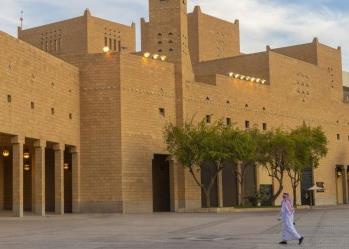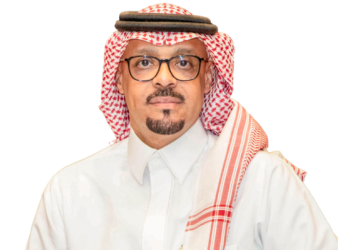
The university professor emerged from obscurity to become the driving force behind talks aimed at developing a new constitution for Yemen
Ahmed Awad bin Mubarak has the look of a man who has had a great weight lifted off his shoulders, only to have it replaced with an equally heavy burden.
With dark rings around his eyes, he nevertheless manages a broad smile of greeting (Ahmed always smiles, says a colleague later, even when he is angry). It is 22 January, less than 24 hours since Bin Mubarak, the secretary-general of Yemens National Dialogue Conference a series of peace talks aimed at the creation of a new constitution for the conflict-stricken state formally brought the conference to a close after 10 months of intensive negotiations.
Conference setbacks
But, as has been the case for much of Yemens political transition, the day did not go smoothly. As delegates at the conference were finalising the agreement, which will be the basis of a new constitution, Ahmed Sharafadeen, a prominent representative of the Zaydi Shia Houthi movement, was killed by unidentified gunmen in central Sanaa. A few hours later on the same street, the son of another delegate, from the conservative wing of Islah the countrys main Sunni Islamist party narrowly escaped a similar fate when a bomb went off under his car. Ansar Allah, the Houthis political wing, pulled out of the dialogue in protest at the assassination of a second of its delegates.
We [have been] rebuilding the state and maintaining the soul of the nation. Its not just a job
Bin Mubarak apologises for being late, explaining that he has spent the morning with the Houthis, trying to coax them back to the talks in time for a closing ceremony scheduled to take place in three days time (in the end, they do not attend). The assassination has cast a pall over what should have been a high point in the transition.
We were so happy, but the happiness does not feel complete anymore because of the death of Sharafadeen, he says.
Bin Mubarak has become accustomed to such complications. In 2013, when another delegate, Mohammed Salem Akoush, was kidnapped, he asked the government to help secure his release. When they did not, he went to the Nihm governorate, where the kidnapping had taken place, and negotiated his release.
This is quite a change of pace for a man who continues to hold a business administration professorship at Sanaa University. I come from an academic background, says Bin Mubarak. Being part of this process was very difficult and really opened my eyes. I have been rediscovering Yemen.
This rediscovery has occurred in analogue to the changes that have taken place in Yemen ever since the youth-led uprising that led to the resignation of the countrys long-time president Ali Abdullah Saleh. In early 2011, Bin Mubarak was the head of the business school at Sanaa University. He was not particularly politically inclined, he says, and although he was frustrated by the social and economic stagnation of the later years of Salehs regime, he did not see how major change could be made possible.
In 2011, as uprisings and revolutions took place across the region, Bin Mubarak found himself caught up in the fervour and became a regular fixture at Change Square, a protest encampment in front of the university. But even during the optimistic early days of Yemens uprising, he says, he would have found it hard to believe the country would have come so far within three years. We dreamt about this, he says. But we didnt have a roadmap.
Emerging leader
It was during this period that Bin Mubarak began to gain notice for his abilities as an organiser and mediator. He was one of the first people I met in the square, says Baraa Shiban, a youth activist and local representative of Reprieve, a UK-based human rights non-profit organisation, who was also made a delegate at the conference. We were trying to put together our demands, the goals of the revolution. He was always trying to arrange workshops, working out how to bring people together.
They will not stop what has been started. This was a dream for us and we must fight to maintain the dream
In November 2011, after months of popular protests, brutal repression and infighting within the Saleh regime, the then-president finally signed a GCC-backed deal under which he agreed to step down in favour of his deputy, Abdrabbu Mansour al-Hadi. At the time, Bin Mubarak was sceptical of the deal, which contained an immunity provision for Saleh and kept his General Peoples Congress (GPC) party in power as part of a transitional government. I was against the Gulf initiative initially, he says. I objected because I thought it was not related to what we had been asking for.
Bin Mubarak returned to his teaching job, but stayed in touch with the activists he had met in the square, unaware that he would soon become a leading architect and proponent of the dialogue conference, an important part of the GCC deal.
Staying neutral
In July 2012, Al-Hadi started appointing members of a technical committee to plan the dialogue conference. Bin Mubaraks name came up. During his time in the square, people had also noticed he did not often take sides on the basis of any political factionalism, Shiban says. The interesting part is that he always tried to keep equal distance from everybody because he wanted to seem neutral. This, he believes, was a big factor in the decision to interview Bin Mubarak for a role on the committee.
When the job offer came in, Bin Mubarak says he was worried and excited at the thought of the challenge. The dialogue, widely touted by the GCC dealbrokers as a model for solving the countrys myriad problems and perhaps those of conflict-stricken Syria too was a bold experiment in state-building, and its success was by no means assured. We [have been] rebuilding the state and maintaining the soul of the nation, says Bin Mubarak. Its not just a job.
According to several other members of the committee, Bin Mubarak proved a standout member and was a clear candidate for the position of secretary-general of the dialogue conference by the time the group finished its work in November 2012. He was just a really calm, organised presence, says another member of the committee, and he genuinely didnt seem to have any leanings towards any one group, which was essential for the job. He could talk to anyone.
The freshly appointed secretary-general thought the job would play to his strength as an administrator. I thought most of my job would be technical, taking care of the finances and logistics, technical support, hiring people, he says. As the conference, which brought together most of Yemens competing factions, along with youth and civil society delegations, began, he was quickly disabused of this idea. I found out I had to be a part of all the political issues, he says. When there were clashes here or there, I had to be out front. The political element was more sophisticated than I thought. What I faced was much harder than I thought.
Bin Mubarak also faced a challenge in creating a level playing field in a country that has traditionally had a strict social hierarchy. For the first time in Yemen, sheikhs had to park their cars and ride the bus alongside other citizens, without guns, he says. It was very hard for these big social figures to be with the other citizens.
Another smile gradually forms as he talks, and it is clear to see he derives some pleasure in the small shifts in mentality that have taken place as a result of the conference. For most of the heads of the big parties, usually they would get together and within a few hours there was a deal, he says of the way politics worked in Yemen before the uprising. For the first time, they now have to sit with other parties, they have to face them. They have to spend hours talking, trying to convince them. The GPC came and they performed as the ruling party. But for the first time, they had to ask people to do things for them.
Social contract
The talks produced a new social contract for Yemen, says Bin Mubarak. But for now, the final agreement is little more than a collection of words on paper. The real challenge will arise in the coming weeks and months, as the agreement is translated into a new constitution, which must be put to a national referendum. Following this, elections will be held and the new government will be tasked with turning the constitution into a political reality, one which is likely to challenge the Saleh-era elite.
Many analysts fear that any move towards radical change could spark renewed conflict. They worry that a campaign of assassinations launched over the past couple of years of which Sharafadeen was just one of hundreds of victims could accelerate as elections approach. They will keep trying to stop [this change] from happening, they will never give up, says Bin Mubarak. But they will not stop what has been started. This was a dream for us and now we must fight to maintain this dream, the political vision.
Bin Mubarak is coy about his plans for the future. Widely tipped to be part of a new coalition government to be appointed in February, he says he does not have the political weight to take on a senior cabinet position. I miss my students, I miss the academic world and I want to get back to that, he says.
But his smile has returned. When his assistant asks how he responded to the question, and MEED tells her he gave the perfect politicians answer, both break into laughter. Well see, she says.
Peace plan for Yemen
In November 2011, Ali Abdullah Saleh signed the GCC deal, a peace plan for Yemen proposed by the GCC states and backed by Western governments and the UN. Under the deal, Saleh agreed to hand most presidential powers over to his deputy, Abd Rabbu Mansour al-Hadi, and step aside after elections held in February 2012.
The deal included an outline for Yemens political transition of which the National Dialogue Conference was a core component. At the talks, 565 delegates from across the political and social spectrum agreed on mechanisms to resolve some of Yemens biggest problems, including the political and economic marginalisation of the northern province of Sadah and south Yemen. They also made a series of far-reaching decisions on the future structure of the state including a shift toward a federal model. Elections are now planned for 2015.
Biography
1968 Born in Aden
Current Professor of business administration at Sanaa University and at Maastricht University in the Netherlands
2007-09 Head of information technology, marketing and production administration departments at Sanaa Science and Technology University
2011 Became a member of the Revolutionary Youths Coordinating Council
2012 Appointed member of the technical preparatory committee for Yemens National Dialogue Conference
2013 Appointed secretary-general of the National Dialogue Conference
You might also like...

Rainmaking in the world economy
19 April 2024

Oman receives Madha industrial city tender prices
19 April 2024

Neom seeks to raise funds in $1.3bn sukuk sale
19 April 2024

Saudi firm advances Neutral Zone real estate plans
19 April 2024
A MEED Subscription...
Subscribe or upgrade your current MEED.com package to support your strategic planning with the MENA region’s best source of business information. Proceed to our online shop below to find out more about the features in each package.








